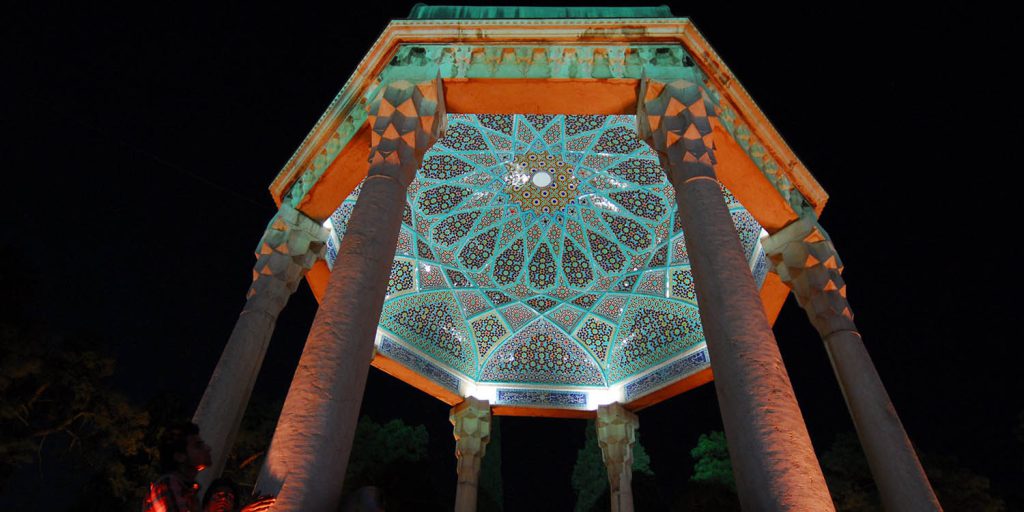
Menu

Hafez
Khawaja Shams al-Din Muhammad ibn Baha’uddin Muhammad Hafiz Shirazi nicknamed Hafiz.
He was given this title because he memorized the whole Quran.
Along with Sadi and Khayyam, Hafez is the best known of the Persian poets in Europe. Goethe devoted part of his West-Ostlicher Diwan to him. Little is known of his life, spent in this century when Tamerlan ravaged Iran and Central Asia, and where an obtuse religiosity reigns.

Hafez is the most famous Persian poet of the 14th century, when he was born in Shiraz and died in Shiraz. Most of his poems are sonnets. Hafez is known as one of the most important influences on Persian speaking poets after him. In the 18th and 19th centuries, his poems were translated into European languages and his name spread in literary circles in the Western world.
Every year, on October 12, a commemoration ceremony for Hafez takes place in his tomb in Shiraz with the presence of researchers from all over the world. In the official Iranian calendar, October 12 is referred to as Hafez Memorial Day.
Most scholars believe that Hafez took Persian lyrical poetry to a height that has never been repeated.
Hafez’s poetry has three spaces of romantic, mystical, and praise. Hafez’s revolution in sonnet, which is the composition of verses with independent meaning, was influenced by the style of the Quran.
Divan Hafez is a book containing all of Hafez’s remaining poems. Most of these poems are in Persian.
Main office: Office no. 5, First Floor,Building No. 404, Corner of Beheshti St. and Qaem Maqam St. Tehran Iran.
Tel : +985138519585 EXT. 117
WhatsApp : +968 912 14 982
Email : info@persiantoursgroup.com